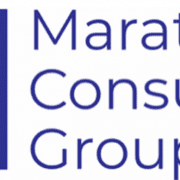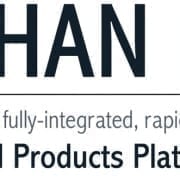How Personalized Healthcare Technology Is Revolutionizing Patient Care
The healthcare industry creates mountains of data — electronic medical records in hospitals and clinics, genetic and genomic information from next-generation sequencing, and behavioral and biological data from wearable devices. But data without insight doesn’t add up to much.
Healthcare organizations that master personalization will enjoy a sustainable source of advantage.
Patient Engagement
A personalized approach empowers patients to take more control of their health. This is accomplished through self-management tools and initiatives that promote shared decision-making, wellness, and patient education. As a result, engaged patients are more satisfied with their treatment and overall experience.
As personalization becomes the new standard, patients are seeking more tailored experiences. This includes everything from personalized treatment plans to customized wellness strategies. For instance, a wellness program can be tailored to address an employee’s unique needs and goals.
This type of personalized healthcare is possible thanks to advances in genomics, big data analytics, predictive modeling, diagnostic testing, and population health. However, the most critical factor for success is ensuring that healthcare organizations prioritize transparency across their operations. This allows them to track better employee performance and location, resource availability, scheduling efficiency (or lack thereof), and patient details. In addition, it will enable them to deliver more meaningful patient communications. This includes communication via wearable devices, mobile apps, telehealth solutions, and more.
Better Health Outcomes
Personalized healthcare, or precision medicine, offers a new frontier that can help healthcare providers provide patients with better outcomes. However, implementing this type of personalization requires the right mindset, digital tools, and data analytics.
Rather than being passive recipients of healthcare services, patients want to take an active role in their health journey. Personalized content, reminders, and telehealth solutions empower patients to make smarter health choices and track their progress over time.
Additionally, preventative healthcare programs can reduce the need for reactionary care and potentially lower insurance costs over time. This reduction can also open new revenue streams for private payors, medical supply, software, and technology companies. Ultimately, all stakeholders can benefit from the personalization of healthcare as long as it is done correctly. Fortunately, advances in data analytics and artificial intelligence are enabling this to happen at scale. The days of one-size-fits-all treatment approaches are fading fast. This is good news for patients, payers, and providers alike.
Improved Patient Satisfaction
Truly Personalized healthcare technology combines two perspectives: that of the consumer and that of the healthcare organization. For the consumer, it means being recognized as unique and receiving relevant content and a hassle-free experience. For the health care organization, it means improving the clinical workflow by using Digital patient records to serve better and manage the consumer.
The result is that patients become more engaged in their health efforts and more likely to stick with their preventative healthcare plans, reducing the risk of them needing more corrective procedures or chronic disease treatments later in life. Better tracking and personalization also reduce trial-and-error prescribing, decreasing the cost of drugs for both the patient and the healthcare system.
Personalized healthcare has the potential to revolutionize medical treatment and create a sustainable competitive advantage for both incumbent payers and providers. With the help of advancements in telemedicine, ML, and other data analytics, they can leverage advanced personalized healthcare technology at scale and reap the benefits for their consumers, patients, and the overall healthcare industry.
Reduced Costs
Personalized healthcare technology can reduce costs for individuals and healthcare organizations. This is because customized care plans allow patients to be more proactive about their health, decreasing the need for expensive hospital visits or invasive diagnostic procedures. Additionally, telehealth services make it possible for patients to receive medical treatment from anywhere, which can also result in cost savings.
Moreover, a personalized approach can reduce doctors’ time on administrative tasks. It’s estimated that doctors waste up to a third of their day entering test results and filling out patient intake forms, which is inefficient and contributes to physician burnout.
Personalized technology can also reduce costs through improved medication adherence. By tracking a patient’s real-time activity, digital tools can identify when they haven’t taken their medicine and alert them to the issue. This helps improve compliance and ensures that prescriptions are used as directed, thus reducing the amount of money wasted on unnecessary medications.













Leave a Reply
Want to join the discussion?Feel free to contribute!